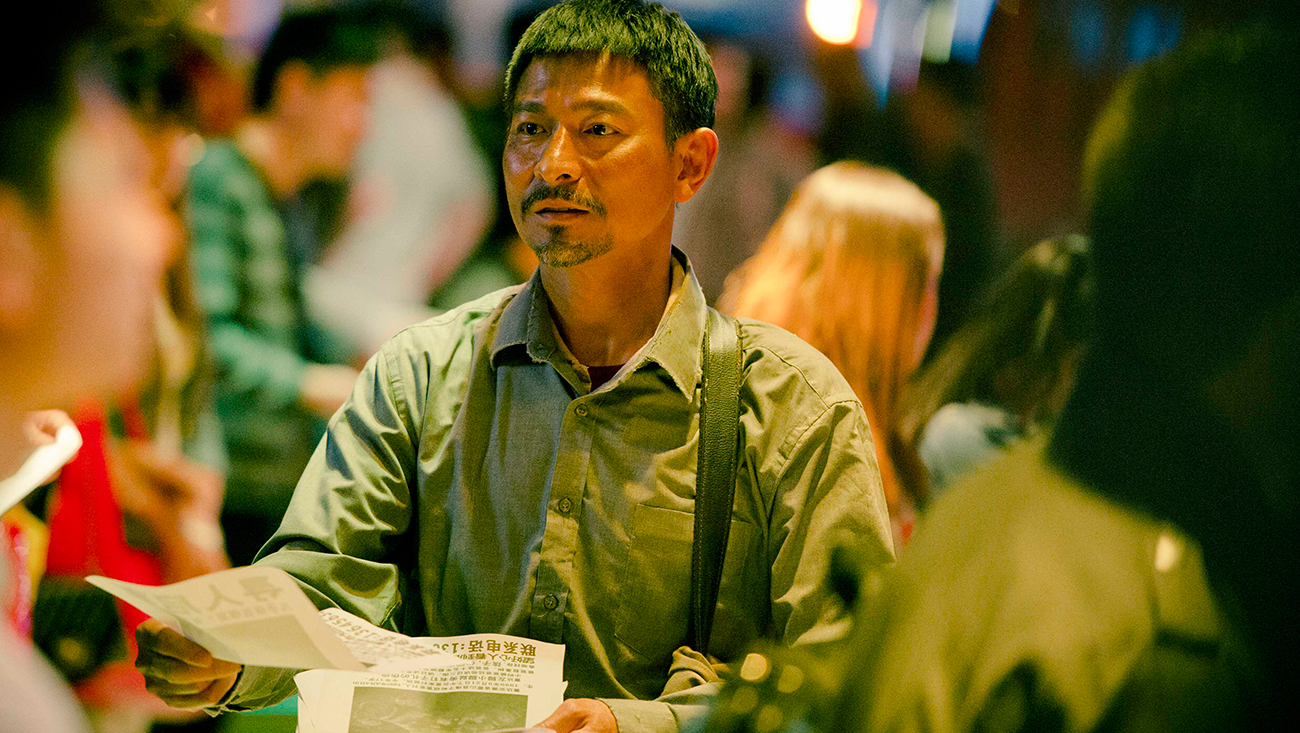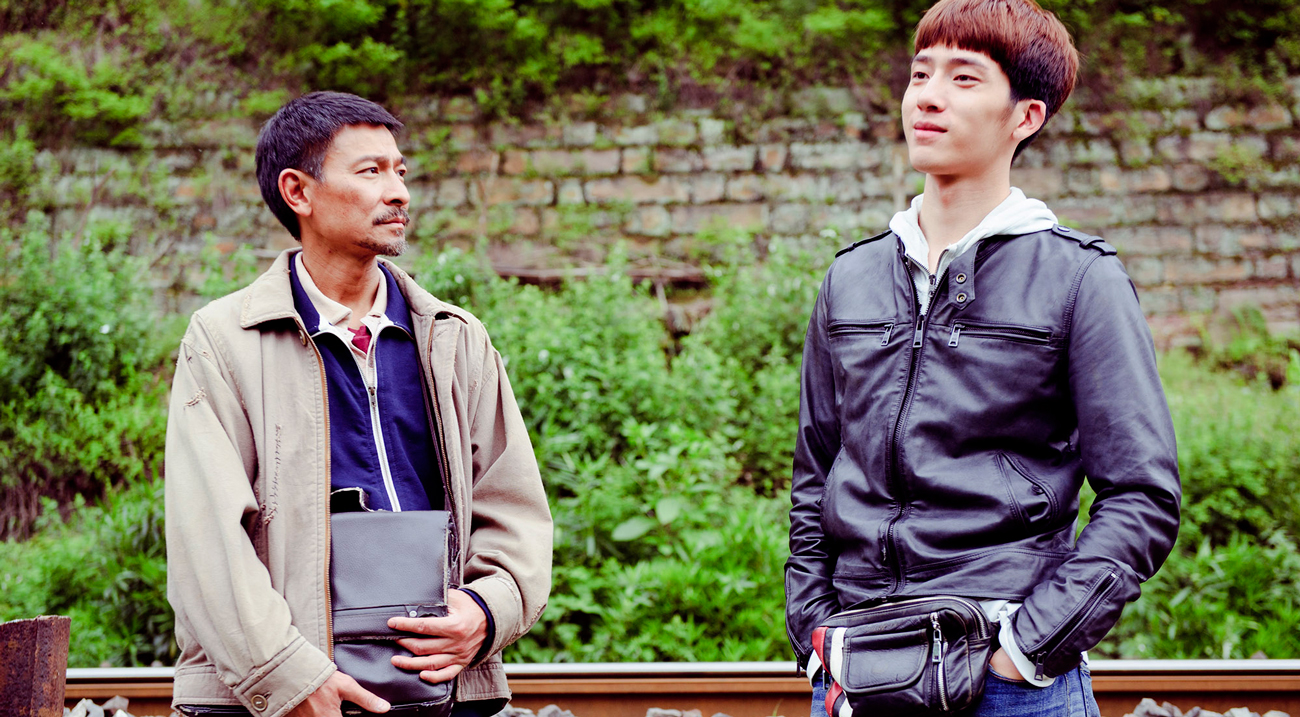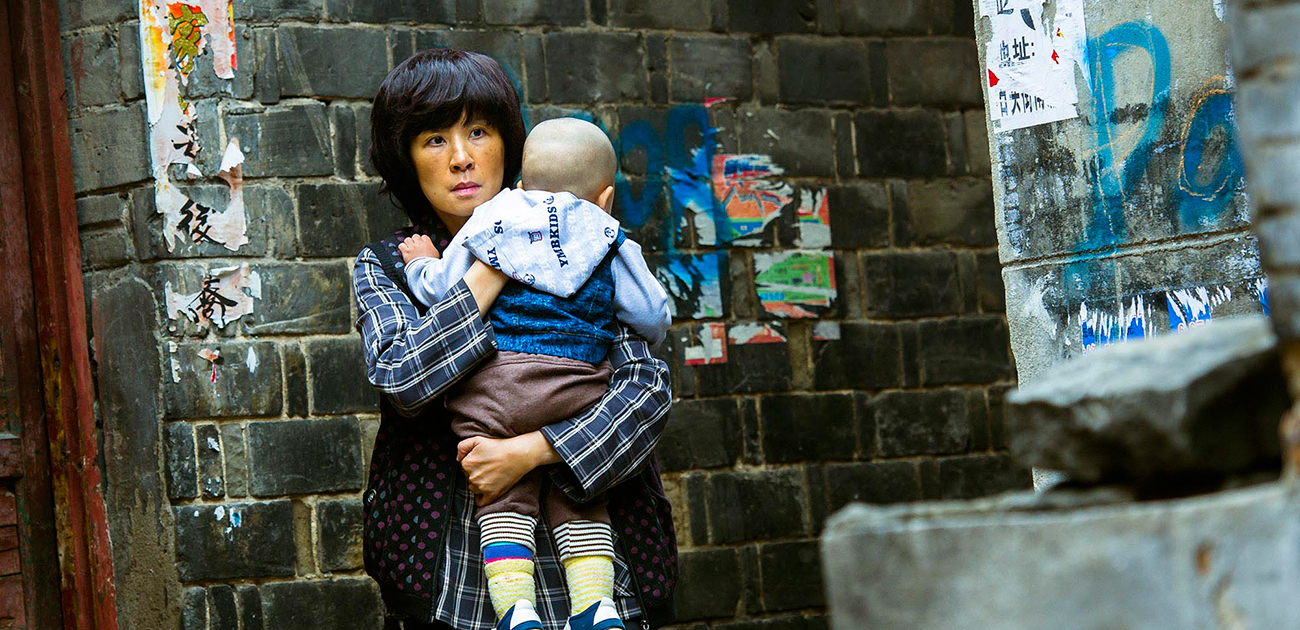Child abduction is the focus of the new Andy Lau starring film, Lost and Love, and it comes off the back of another Chinese child abduction drama in the form of Peter Chan’s (Comrades, Almost a Love Story) latest drama, Dearest, starring Zhao Wei. Dearest hasn’t had the chance to be screened in Australia officially just yet but with both films focusing their efforts to raise awareness of this very serious human rights issue currently existing in China, it’ll no doubt cause much needed discussion over what can be done to prevent such activities from continuing to happen in the country.
While Lost and Love may be inspired by a true story, the film itself feels like it exists solely to make the issue more known to audiences and it pays off in that respect. Given its primary motivation to make audiences much more aware of the rampant cases of child abduction across China however, it loses its grip with its storytelling which could easily have been turned into something quite powerful and emotionally wrought.

Directed by Peng Sanyuan (the filmmaker’s debut feature film), Lost and Love follows Andy Lau’s character Lei Zekuan, a man who has been on a fourteen year search to find his missing son. With a motorcycle and flags bearing his infant son’s face and details about his disappearance, he travels all across China from city to city hoping to find any answers that might lead him to his missing son.
Along the way, he picks up Zeng Shuai (Jing Boran), a mechanic who is empathetic of Lei’s search as he himself was kidnapped as a child and sold to another family. Thus begins the duo’s search to find their respective families as the two traverse across China in search of hope.

Once the film connects Zeng Shuai and Lei Zekuan together, it transforms into a road movie of sorts where the two despondent souls connect on the road over their search for their respective family. And in doing so, they form their own unintentional father-son relationship. Their bonding scenes, while well-founded, unfortunately feel out of place within the overall film.
Most of the film is appropriately serious and, though veering in melodramatics every so often, plays it straight mostly. Its subject matter is certainly no laughing matter and to have awkwardly positioned sequences revolving around comedy detracts from the overall experience.
The majestic score by Polish composer, Zbigniew Preisner (known for his collaborations with famous filmmaker, Krzysztof Kieślowski), is certainly grand but can also feel overbearing on the film. One can’t help but imagine a simpler, less ostentatious sound to have better reflected the human tragedy on film.

Despite its often overbearing nature, there’s certainly no denying the music’s power to beautifully come alive when coupled with the film’s sweeping cinematography, presented by one of East Asia’s premier cinematographers, Mark Lee Ping-bin. The Taiwanese cinematographer finds beauty in even the most rustic of locations, including dull blue-collar cities and a floating fishing village.
While these gorgeously sweeping wide shots of China’s landscape – an appropriate hallmark of the road trip movie – are certainly a visual treat, they do more than just provide a beautiful tour of a troubled country. Filmed from a distance so that audiences can absorb the entire landscape, these massive wide shots manage to show the unfortunate hopelessness and potential futility found in the main characters’ search to reunite with their family (as well as real families who’ve had to suffer because of this too). In a nation that’s filled with a billion people across an extraordinarily large expanse, finding one person is, as Lau’s character puts it, like finding a needle in a haystack.
Mixed in within the film’s narrative are also short vignettes that don’t necessarily do much to support the story. These small tidbits are meant to feel like poetic additions woven into the film but only end up reminding audiences of China’s preference towards having sons than daughters while also further demonstrating how differently some parents react to the disappearance of their child.

It’s terrible to know that child abduction is continuing to happen in the country and there appears to be no real solution at the moment to try and stop it from happening. All families can do is hold out for hope, as the characters in Lost and Love do, but for some parents they simply can’t hold out long enough.
And that too is a real tragedy as the film is not only about the fates of those abducted but also about the parents who have to live without knowing whether or not their child is dead or alive. Where Lost and Love might not connect with its story and plotting but its message and visual prowess serve to reinforce its commentary on the child abduction endemic that continues to plague China.
